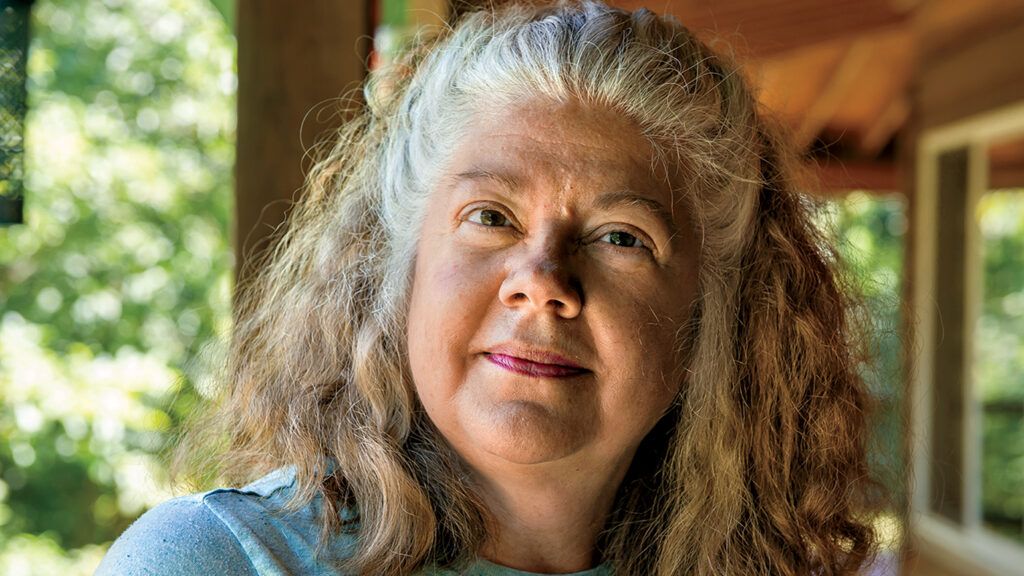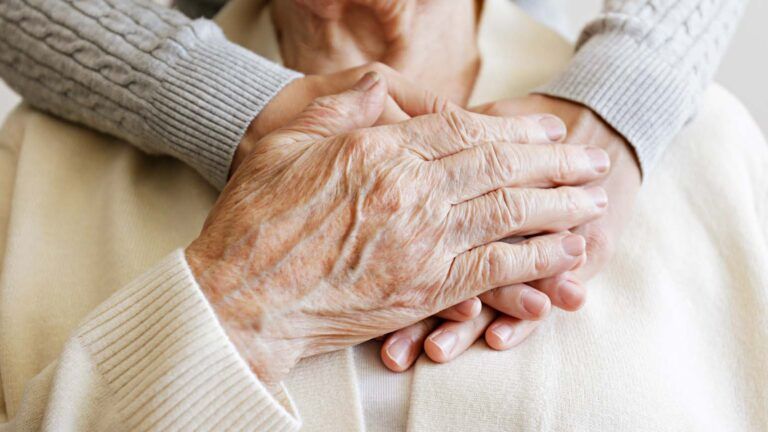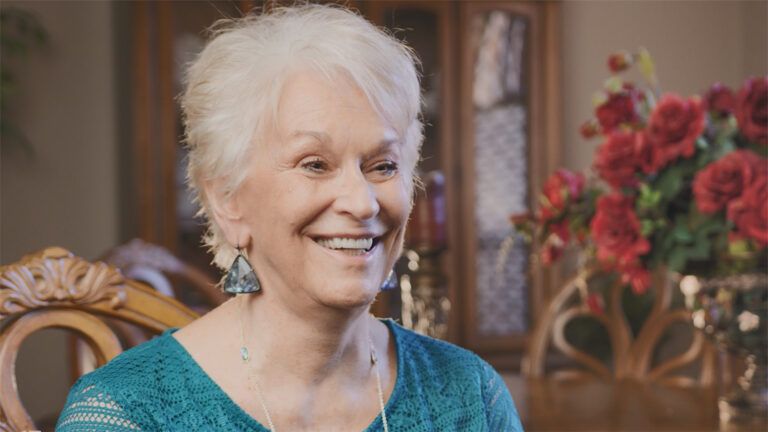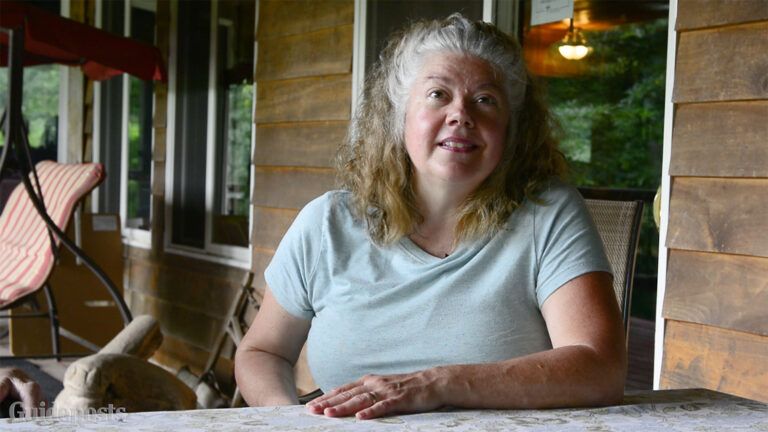I sat beside the elderly veteran’s bed in the hospice unit. Watching him struggle to draw breath, I felt an ache in my own chest. Lord, am I really helping? I’d been so sure I was on the right path, a path the Lord had set me on, but now I wondered.
Until he’d moved into hospice, this Vietnam veteran—I’ll call him Robert—had been living with my family as part of the U.S. Department of Veterans Affairs medical foster home program. Taking care of these men—cooking for them, helping them with daily activities, providing a safe and stable home—was my job. Although we’d welcomed Robert into our house more than two years earlier, I’d always felt some friction between us. He and I had never really been able to see eye to eye.
Maybe I’d tried to get too involved. “Don’t you think you’ve had enough sugar?” I’d ask, watching him guzzle his third soda. He’d been homeless for many years, and his health was precarious. He didn’t eat well or take his medications on time. I hovered, worried he might slip away, dabble in alcohol and other harmful substances. I wanted so badly to support him, to help him live his best life.
Robert would bristle. “I’m 75 years old. I know when I’ve had enough.”
That stung.
Caring for veterans felt like my second calling, but the work wasn’t cut-and-dried. Each veteran needed a different type of care and sought different levels of integration with our family. Some loved being a part of the life my husband and I had built with our daughters. Others kept more to themselves.
I started running a medical foster home in 2014, believing I could save every veteran who came to us—treat whatever ailed them and heal them of their pain, both physical and emotional. I was a nurse, after all—I’d spent 24 years working at an Indianapolis hospital’s bone-marrow transplant unit. And nurses are fixers.
My husband, Todd, and I had adopted three sisters from the foster care system in 2011. We’d met the girls while our friends were fostering them. My friend called me one day and said, “I don’t think God wants us to adopt these girls into our family. I think we’re being led on a different path.”
I was heartbroken for the girls. They were so sweet and funny. I was 46 and had never had children of my own. It just hadn’t happened. But maybe being a mom wasn’t out of the question.
“Todd, what if we adopted those girls?” I said. We decided to go for it. We knew we’d have to make some big adjustments. I loved my job at the hospital in Indianapolis, where I’d lived during my first marriage. I’d stayed on there even after I’d married Todd and moved to rural Greenville, 125 miles away. But I couldn’t do the two-and-a-half-hour commute anymore. Not while raising three girls under the age of 10.
“I don’t know what to do,” I told Todd one night. “I want to stay home, but we need the money.”
“Why not try doing what my mom does?” he said.
Todd’s mother, who used to own a bed-and-breakfast in Greenville, had been running a medical foster home for veterans for the past eight years. It was a 24/7 job—many of the men had complex medical issues and couldn’t live alone—but my mother-in-law found deep meaning in it.
It seemed like the perfect solution for our family. I could stay at home with our daughters while using my nursing skills and earning income.
“This is our chance to do what Christ asks of us,” I explained to my girls. “To love our fellow human beings. To take care of heroes.”
They had their doubts, but I had faith that God wouldn’t give us more than we could handle. Our large three-story home had a walk-out basement with two bedrooms and two bathrooms. The plan was to have the veterans live down there. They had call buttons they could push if they needed anything.
I’d cared for thousands of critically ill patients. I was confident in my ability to manage our new fosters. Maybe a little too confident. Our first veteran came to live with us in 2014. Right away, he made it clear that he had no interest in my managing his daily life. We didn’t hear a peep out of him the whole first week. When he finally emerged from downstairs, looking a bit haggard, he didn’t want to chat. Was I doing something wrong?
Still, I was determined to treat him like family, even while giving him the space he wanted. He started eating meals with us, telling us a bit about his personal life. We invited him to church with us on Sundays. He never came, and I never pushed, but I made sure he knew he was welcome.
My daughters took an interest in him too. They’d go downstairs on Saturdays to knock on his door. Yanet, my oldest, would ask, “Do you want to play board games with us?”
The VA provided a lot of support. The program coordinator visited us each month. VA physical and occupational therapists helped the veteran stay mobile, and a recreational therapist brought crafts and musical instruments.
We got into the swing of things and agreed to take in another veteran. The program limits caregivers to three veterans at a time, and I could see why. Between raising our girls and coordinating the veterans’ medical and therapy appointments, visits to the VA and other activities, I was exhausted.
To make matters more complicated, our second veteran was a 90-year-old with dementia who’d served in World War II. “I don’t feel comfortable keeping somebody with dementia downstairs,” I said to Todd. “What if he wanders off?”
We turned our living room into another bedroom. Todd put up walls for privacy, but because it’s on the main floor, it allowed the veteran to be a part of everything going on in the house.
“I’m not sure I can do this alone,” I said to Todd one day. “Would you be willing to give up your landscaping business to help me?”
Todd agreed. Running a medical foster home became a second career for both of us.
Still, I worried that our daughters would resent sharing more living space with our guests. One morning at breakfast, I asked, “How are you girls getting along with our newest veteran?”
Yanet grinned and said, “It’s like having a new grandpa!”
The veterans stayed with us until they opted for another living situation or passed on. Robert came to us in November 2017. Darryl, an Army veteran, moved into the main floor bedroom in November 2019. He’d lost both legs due to diabetes and used a wheelchair. He settled into our family right away, bantering with the girls, chatting with me as I cooked. I felt like I was hitting my stride.
Every day, I was up at 5 a.m., preparing one veteran for dialysis, helping Darryl with his wheelchair, organizing meds, getting the girls off to school. This is what God made me for, I thought. I was still exhausted but joyously so.
In late winter 2019, Robert took a turn for the worse. He was suffering the long-term effects of COPD, and it became clear he wouldn’t last much longer. When he told me he wanted to go into hospice care rather than stay with us, I tried not to take it personally.
Robert had no family of his own and few friends. No matter how hard I tried to connect with him, he and I never quite clicked. I kept reminding myself that his wartime experiences and years of homelessness had left him with scars I couldn’t begin to understand. That I couldn’t expect to form a bond with every veteran.
Not long after he moved out, I went to visit him in the hospice unit. He looked so frail and alone, lying there in his bed, struggling to breathe. I took pride in my work as a nurse and as a caregiver, but Robert didn’t want any part of it. He didn’t want to be in our house when he passed, even though it was the only home he’d known in many years. Had anything I’d done even helped him?
I pulled my chair closer to Robert’s bed. “I just wanted to see how you’re doing,” I said.
A light flickered in his eyes. At least he didn’t seem upset I was there.
Robert took a shaky breath. “Lynn, I changed my mind,” he said. “I want to be with you when it happens. I know you and the family love me. Please take me home.”
I almost broke down right there. I’d spent the past few years thinking Robert resented my attentiveness and attempts to help. I thought I’d failed as a caregiver, that I wasn’t meant to do this. I get it now, Lord, I prayed on the drive home. He wasn’t asking me to fix all of our veterans’ problems but to provide what they needed most: love and care.
My family and I did our best to make Robert comfortable during his last weeks. Every night, he hugged me and I’d kiss his forehead.
“I love you,” I said, and I meant it.
I let the girls miss school to attend his funeral. We drove to the veterans’ cemetery. Would we be the only ones there? Robert had no family to notify of his death. A life of service, I thought, and no one but us to mourn his passing.
I stopped in my tracks. Fifty people in dress uniform waiting for us. A full military burial.
“Are you his family?” the chaplain asked. We were the only civilians.
“We’re his medical foster—” I started to say. Then I looked at my girls. “Yes. We’re his family.”
Read more: Supporting Military Caregivers
For more inspiring stories, subscribe to Guideposts magazine.





